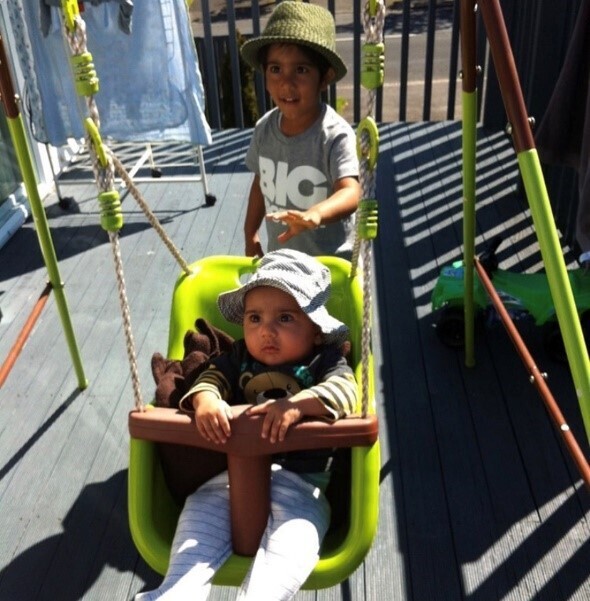It’s almost summer and its starting to heat up already! After the year we have all had, we can’t wait to head out and enjoy our kiwi summer.
Now I don’t want to be a downer, but it is important to note that with summer fun, there also comes a few summer dangers. Here are 5 important ones and what you can do to help and prevent them to keep our kiddies safe this summer.
Sun burn
Prevention: Babies under 6 months shouldn’t wear sunscreen due to the possible chemical absorption (Australasian College of Dermatologists), so keep them in the shade or cover them up with clothing and a hat. But if they have to be exposed, then sunscreen is better than sun burn. Otherwise all children should apply sunscreen 20-30 minutes before going outside, stay in the shade where possible, and cover up with clothing, hats and sunglasses. Slip, slop, slap and wrap!
If any sun burn signs are present:
Mild cases (red, hot skin) - cold compresses with a wet cloth.
Severe cases (blistering or swelling) - cool running water for 20 minutes
For minor burns apply after sun lotions or aloe vera gel (not on blistered skin)
Give plenty of fluids
Seek urgent care if your child has a severe case, fever or appears unwell.
Dial 111 if they have passed out or are feeling faint and keep them on their side in the recovery position.
If they stop breathing, start CPR immediately.
Heat exhaustion and heat stroke
Prevention: Dress them in lightweight, light coloured clothing to help stay cool. Don’t cover up their prams with blankets to block the sun as this can increase the temperature in the pram by 5-15 degrees Celsius. Never leave children in the car alone. Ensure they are drinking plenty of fluids and if breastfeeding then don’t hesitate to give them more feeds than normal.
Common signs include
Dizziness
Nausea and vomiting
Headaches
Fever
If your child is showing any of these signs seek urgent medical care.
To help them cool down, you can:
move them to a cool area
remove any extra layers of clothing
use a fan
give them water to drink (if they are conscious)
cool their skin using a shower, if possible, or cover their body with cool, damp towels or sheets, being careful not to cool them down too rapidly, especially young children.
If they start to have seizures or lose consciousness call 111 immediately, keep on their side in the recovery position, and start CPR if not breathing and unconscious.
Drowning
Prevention: Always keep small children within arms reach, constantly have eyes on them (don’t be distracted with your phone or talking to others), and be ready to respond if needed. Around the home always empty baths, sinks and buckets and keep drain plugs out of reach. They can drown in as little as 4cm of water. Even the toilet bowl is a drowning hazard!
If drowning has occurred
Remove them from water as safely as possible, (without putting yourself at risk).
If they are conscious, coughing and breathing normally then reassure them, keep them warm and dry, and see a doctor.
If breathing but unconscious, place on their side (recovery position) and dial 111 for an ambulance.
If not breathing and unconscious, dial 111 for an ambulance and start CPR immediately.
Bee/Wasp Stings
Prevention: Keep an eye out for beehives or wasp nests on your property and ensure children are not playing near there.
If your child has been stung it will be red, swollen, itchy and painful.
Remove bee stings by immediately scraping off with either your fingernail or a card (like a credit card). Don’t use tweezers as this can squeeze more venom into the skin.
Wash the area and then apply a cold compress
Use paracetamol or ibuprofen as directed for pain
The National Poisons Centre is available 24/7 for advice on stings 0800 764 766
If swelling continues to increase and there are signs of infection then see your doctor
If there is widespread hives, and your child becomes pale and floppy with swelling around face and difficulty breathing, they are likely having a major anaphylactic reaction and this requires calling 111 for an ambulance immediately.
For known allergies, use Epipen and follow anaphylaxis plan as directed.
If unconscious, place them on their side in the recovery position and if not breathing then start CPR immediately.
BBQ’s
Prevention: BBQ’s can be a common cause for burns during the summer months. Ensure children are always supervised around them and keep a child free zone around BBQ’s at all times even after you have finished using them.
If there is a burn
Remove clothing from burn area unless stuck to skin and then place under cool running water for 20 minutes.
Call an ambulance for a burn area bigger than the size of their own hand or anything around the face or genital area.
After the area is cooled completely, cover loosely with cling film, and see a doctor.
Burns bigger than the size of a 50 cent coin should be checked by a doctor.
If any concerns or signs of infection, see your doctor.
To be prepared for an emergency situation with your child the best thing you can do is learn infant and child CPR and first aid. Contact Little Beat First Aid for enquiries regarding our private in-person and online sessions.
Follow me on social media for other child health and first aid tips!
https://www.facebook.com/littlebeatnz/
https://www.instagram.com/litt...
Have a fun and safe summer from Shrenika at Little Beat First Aid



